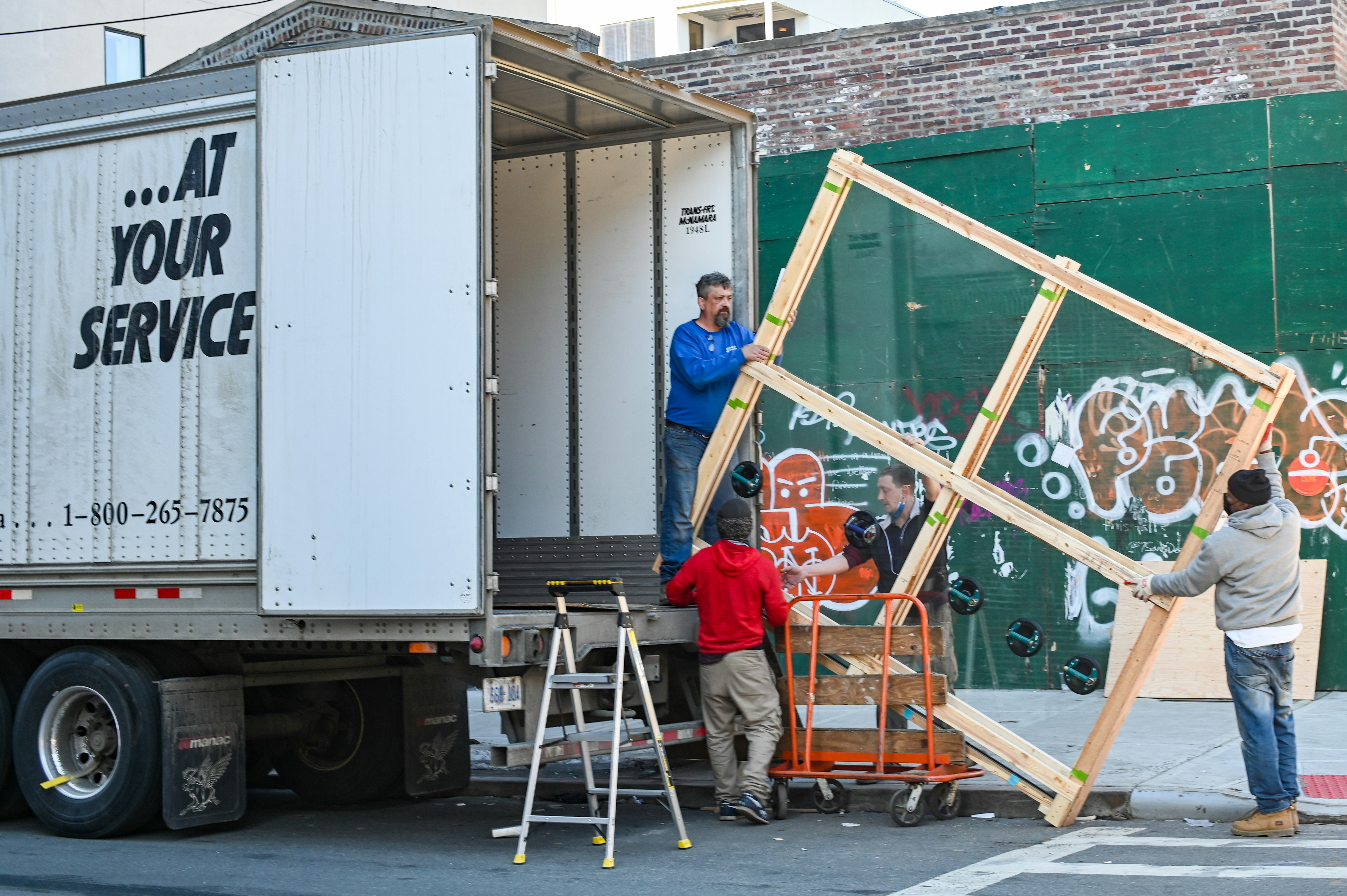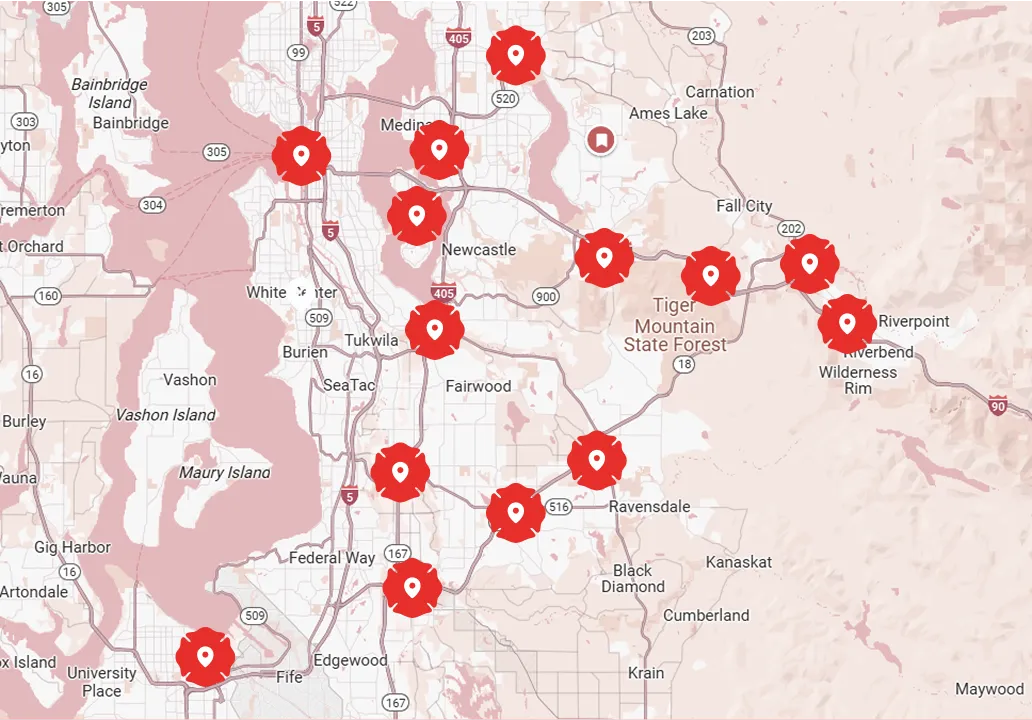Out of State Movers in Tacoma, WA
.webp)
Moving out of state is a complex process requiring careful planning, regulatory awareness, and reliable logistics. For Tacoma residents, specialized interstate movers anticipate local constraints, seasonal conditions, and transit routes to minimize delays and protect belongings. The guide covers planning timelines, licensing, estimates, packing and inventory best practices, temporary storage, and insurance options tailored to long-distance relocations. It also outlines expected transit windows, paperwork, and what to expect during pickup and delivery, plus post-move tips to settle into the new home.

Moving Out of State Movers in Tacoma, WA
Moving out of state is a major life change that requires precise planning, clear knowledge of interstate regulations, and trusted logistics. For Tacoma residents, the combination of local streets, seasonal weather, and regional routes adds specific challenges that make working with experienced out-of-state movers essential. This page explains what to expect from professional out-of-state moving services in Tacoma, WA, including planning timelines, interstate rules, packing and inventory best practices, transit windows, and storage and insurance options tailored to long-distance relocations.
Why choose specialized out-of-state moving services in Tacoma, WA
Interstate moves involve federal rules, distance-based logistics, and longer transit times than local moves. In Tacoma, narrow historic districts, high-rise elevator scheduling, limited curbside space near downtown, and proximity to mountain passes and ferry routes influence planning. A specialized out-of-state mover familiar with Tacoma will anticipate parking permits, building requirements, and seasonal impacts like heavy rain or winter travel on I-5 and mountain corridors. Properly managed, these considerations minimize delays and protect your belongings across state lines.
Common out-of-state moving scenarios we see in Tacoma
- Military relocations from Joint Base Lewis-McChord requiring strict timelines and documentation.
- Families moving to or from other West Coast cities, the Mountain West, or the East Coast.
- University-related moves for faculty and graduate students linked to University of Washington Tacoma.
- Moves involving specialty items such as pianos, antiques, or large artwork from Craftsman-era homes.
- Cross-state moves that require temporary storage due to closing and occupancy date mismatches.
Typical planning timeline for an interstate move
- 8 to 12 weeks before move day: Start researching licensed interstate movers and gather written estimates. Begin decluttering and make a high-level inventory of major items. Check any lease or closing timelines that affect move dates.
- 4 to 8 weeks before move day: Confirm mover availability and discuss binding vs non-binding estimates, valuation options, and estimated transit windows. Book elevator times, loading dock or curb permits for Tacoma buildings if needed. Reserve vehicle shipping or pet transport if applicable.
- 2 to 4 weeks before move day: Finalize packing strategy, label system, and essential items bag. Confirm pickup date and expected delivery window. Make arrangements for temporary storage if needed.
- 1 week before move day: Reconfirm logistical details with your mover, including parking permissions and point of contact at pickup and delivery. Prepare important documents and a list of items requiring special handling.
- Moving day and transit: Be prepared for variable delivery dates depending on distance, routing, and seasonal conditions. Keep a record of the mover’s DOT or carrier number and written inventory.
Packing and inventory management for long trips
- Start with a thorough inventory: Create a room-by-room list and photograph high-value items. This helps with claims, organization, and unpacking priorities at the destination.
- Use long-trip packing standards: Double-box fragile items, pad furniture with moving blankets, and use moisture-resistant wrapping for items being stored or shipped for extended periods. Tacoma’s damp climate makes moisture protection especially important for wooden antiques and electronics.
- Labeling system: Use clear labels indicating room, contents, and disposition (fragile, load last, unload first). Also include a numbered inventory that corresponds to a master spreadsheet.
- Essentials kit: Pack a separate essentials bag with documents, medications, a change of clothes, basic kitchen items, chargers, and tools for minor assembly. For out-of-state moves the essentials bag prevents disruption during longer transit windows.
- Specialty items: Arrange custom crating for pianos, artwork, and oversized antiques. Discuss climate-controlled transport or storage for sensitive items.
Interstate regulations and paperwork simplified
- Interstate moves fall under federal jurisdiction. Expect to receive a written estimate and a bill of lading that documents pickup and delivery. Review these documents carefully for delivery terms, valuation coverage, and any accessorial charges.
- Valuation coverage is not the same as full replacement value. Understand the difference between basic released value and full replacement coverage so you can select the appropriate protection for high-value belongings.
- Be prepared to show identification and provide required shipment information. Keep copies of home sale or lease documents when timing impacts storage or delivery windows.
- Ask your mover about their compliance with federal moving regulations and for their carrier identification numbers to confirm licensing and insurance.
Estimated transit windows for Tacoma relocations
- Short regional moves (Pacific Northwest): 1 to 3 days typical for nearby Washington and Oregon destinations.
- Cross-mountain moves (Idaho, Montana, Colorado): 3 to 7 days, depending on seasonal road conditions and routing. Winter weather over passes can extend transit.
- Long haul to central or eastern states: 5 to 10 days typical; coast-to-coast moves can run longer depending on schedule and carrier routing.
- Delivery flexibility: Expect a window rather than a single guaranteed delivery date. Plan for contingencies if your arrival date at the new home is inflexible.
Storage and insurance options for long-distance moves
- Short-term storage: Useful when closing dates do not line up or if renovations are pending. Choose facilities that offer secure access and clear inventory protocols. For Tacoma residents, consider storage with climate control to offset damp conditions.
- Long-term storage: If you need extended storage, pick units with pest control, humidity management, and visible security measures. Confirm the mover’s procedures for inventorying and delivering stored goods when needed.
- Insurance and valuation: Compare basic carrier liability with third-party transit insurance that provides replacement cost coverage. High-value items may require appraisals and specialized insurance riders. Keep receipts and photos as documentation.
What to expect with professional movers during pickup and delivery
- On pickup day expect a pre-move walkthrough to verify inventory and condition. Items will be inventoried and you will receive a copy of the bill of lading.
- Loading is typically staged room by room using a pre-agreed plan to optimize truck space and protect delicate items. Keep essential documents with you rather than packed in the truck.
- During transit your carrier should provide updates on estimated delivery windows. If weather or routing changes occur, expect communication about new delivery estimates.
- Delivery includes itemized unpacking if arranged, placement of furniture, and a final walkthrough to note any claims or missing items.
Final benefits and post-move tips
A well-executed out-of-state move reduces stress, shortens unpacking time, and better protects your belongings. After delivery, focus on these tasks: inspect items against your inventory, keep important documents in one place, and schedule any repairs or maintenance needed after transit. For Tacoma residents, allow extra time to adapt to local differences at your destination, whether that means new climate conditions, vehicle registration, or neighborhood parking rules.
Moving out of state requires careful coordination of timelines, understanding of federal regulations, and smart choices about packing, storage, and insurance. With clear inventories, realistic transit expectations, and knowledge of Tacoma-specific logistics, your interstate relocation can proceed efficiently and securely.

